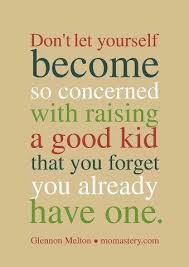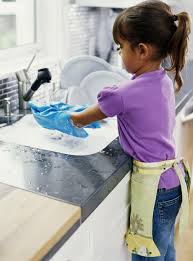
In just a few days, we will be sitting down to enjoy Thanksgiving dinner with family and friends. Dinner conversations in homes across the country will begin with the ritual of going around the table, and from young to old, sharing what each is thankful for and why.
This is a wonderful and meaningful ritual to have, but how many of us limit this ritual to this one special day when we are gathered around a turkey dinner complete with all the trimmings?
Giving thanks and showing appreciation is an art and one that needs to be worked on daily. It is something we must learn. Then, it is our responsibility to pay it forward and teach those around us (especially our children) the art of gratitude.
Many parents tell me:
“I tell my kids to appreciate what they have-that there are a lot of other children in this world that don’t have what they have. But they don’t seem to get it AND they take everything I do for them and what I give to them for granted!”
So let’s teach our children to be internally grateful and appreciative for what they do have.
Pay it forward by incorporating the 5 tips below into your daily living and you will be forever grateful that you did!
1- Express and share your own gratitude. (Make sure to do this in earshot of your children!) Showing gratitude for what we often take for granted such as having  a roof over our head at night or for the driver that allowed us to get in front of them so we wouldn’t miss our turn, are wonderful ways to model our thankfulness, to become mindful of life’s daily blessings and to shift our focus to the good in life vs. the bad. The more we share our gratitude for life’s simple pleasures each day the more our children will naturally discover their own reasons to be grateful and learn to express their gratitude, too!
a roof over our head at night or for the driver that allowed us to get in front of them so we wouldn’t miss our turn, are wonderful ways to model our thankfulness, to become mindful of life’s daily blessings and to shift our focus to the good in life vs. the bad. The more we share our gratitude for life’s simple pleasures each day the more our children will naturally discover their own reasons to be grateful and learn to express their gratitude, too!
2- Appreciate your children. We want our children to appreciate us- all that we do for them, provide for them and give to them so we MUST show our appreciation for them. Here are some ways you can express gratitude to your children beginning today!
“Wow, thank you for holding the door open for me!” “Thank you for your tight hugs! They make me feel sooo good!” “I appreciate your willingness to help me rake the leaves. It certainly makes this more fun when we are doing this together! Thank you!!” “Your smiles make my day that much better! Thank you for being my sunshine today!” “Thank you for taking the trash out! Our family works so much better when we all chip in together!” “I just love how the two of you have played together today. You became a team when deciding how to build the fort.”
We can also show our appreciation to our children through the art of the hand written thank you note. Whether they have purchased a gift, have hand crafted a gift made with love, of course, or have given you the gift of a sweet gesture, a thank you note written from your heart (and even sent via snail mail!) will reap more benefits than you could imagine.
And for those of us that nag our children to write thank you notes we must ask ourselves, “Do I write thank you notes? Do I write thank you notes to my children?” We must practice what we preach and I, for one, will be committed to sending my children hand written thank you notes from now on. How about you?!?
Showing and expressing our appreciation to our children is a gift that will keep on giving. Imagine the sheer joy of your children feeling appreciated and then imagine and savor in how much more cooperative your children will be. Now that is something we can all be grateful for!
3- Give your children chores.  Chores are not only a part of daily living but they help each member of the family to feel needed (which is a basic human need). Through helping out and chipping in, and without receiving payment, not only will your children learn that the family runs more effortlessly and efficiently but they will learn to understand that hard work and effort is required to accomplish tasks (clean dishes do not miraculously appear on the table each night) and that their effort is greatly appreciated. The more your children feel appreciated, the more they will be willing to help. And this feeling has a much larger payout than any dollar bill could possibly have. So parents….Appreciate your child- Thank your children for their help even if “they are supposed to be doing this anyway!”. Your children will quickly learn and will feel grateful for all you do for them (and your home will be much tidier!).
Chores are not only a part of daily living but they help each member of the family to feel needed (which is a basic human need). Through helping out and chipping in, and without receiving payment, not only will your children learn that the family runs more effortlessly and efficiently but they will learn to understand that hard work and effort is required to accomplish tasks (clean dishes do not miraculously appear on the table each night) and that their effort is greatly appreciated. The more your children feel appreciated, the more they will be willing to help. And this feeling has a much larger payout than any dollar bill could possibly have. So parents….Appreciate your child- Thank your children for their help even if “they are supposed to be doing this anyway!”. Your children will quickly learn and will feel grateful for all you do for them (and your home will be much tidier!).
4- Teach the value of patience and hard work. At one time, children would dream and brainstorm how they could earn the newest pair of sneakers or the latest hi-tech gadget. Today, a common complaint is that children have an increased sense of entitlement. It is important to keep in mind that their seemingly lack of appreciation is being fueled by parents and others catering to their every desire without sacrifice of any kind. And then we become resentful that our children do not show appreciation and act like “ungrateful little brats”.
We have robbed our children of the excitement of dreaming and of the understanding of what it means to wait and to even work for something that is out of their immediate reach. Brainstorm with your children on ways they can earn what they want (but not giving in to paying for chores that are their daily or weekly contributions to the family).
Helping our children learn to work and to wait for life’s treasures by focusing on what a child needs vs. what a child wants will cultivate a stronger sense of internal gratitude and increased feelings of happiness rather than handing a child what he wants, and when he wants, on a silver platter. Being patient while waiting and working towards a goal helps to create a sense of appreciation for what we have and don’t have. Are you more appreciative of what is handed to you or for what you have had to earn on your own?
5-Give back to others.  Whether you are picking up the pen that fell onto the floor and handing it back to the woman that dropped it or helping to build a home for a deserving Habitat for Humanity family are efforts that will not only teach your children about acts of kindness but will also help to build their character. The saying, “to give is better than to receive” is powerful and true but we must provide our children with opportunities to be selfless and to give back to those in need. What opportunities will you give your children this holiday season to give back? What does your community offer to get involved?
Whether you are picking up the pen that fell onto the floor and handing it back to the woman that dropped it or helping to build a home for a deserving Habitat for Humanity family are efforts that will not only teach your children about acts of kindness but will also help to build their character. The saying, “to give is better than to receive” is powerful and true but we must provide our children with opportunities to be selfless and to give back to those in need. What opportunities will you give your children this holiday season to give back? What does your community offer to get involved?
